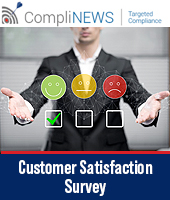The operation of data ethics in the financial services sector
Publish date: 08 August 2019
Issue Number: 13
Diary: CompliNEWS Ethics
Category: Ethics
Financial institutions have become accustomed to managing gigantic volumes of data, ranging from customer data to business intelligence and employee data. However, the financial services sector is being revolutionised by data-driven, and data-generating, technology, notes Allen & Overy in a recent media release. With the likes of mobile, blockchain and artificial intelligence (AI) reshaping traditional financial services, we are seeing the birth of a new trend threatening to disrupt these disruptive technologies – data ethics.
According to the article data ethics is the study and evaluation of moral problems relating to data, algorithms and corresponding practices to formulate and support morally good solutions. In practice, data ethics embodies the difference between what financial institutions can do with data, and what they should do with data. In other words, where legislation and regulation form the letter of the law, data ethics represents the spirit of the law. Technologies such as artificial intelligence amplify and add new dimensions to ethical uses of data, but the concept of data ethics is technology-agnostic. This means that it is just as relevant to other data-rich activities undertaken by financial institutions, such as social listening.





